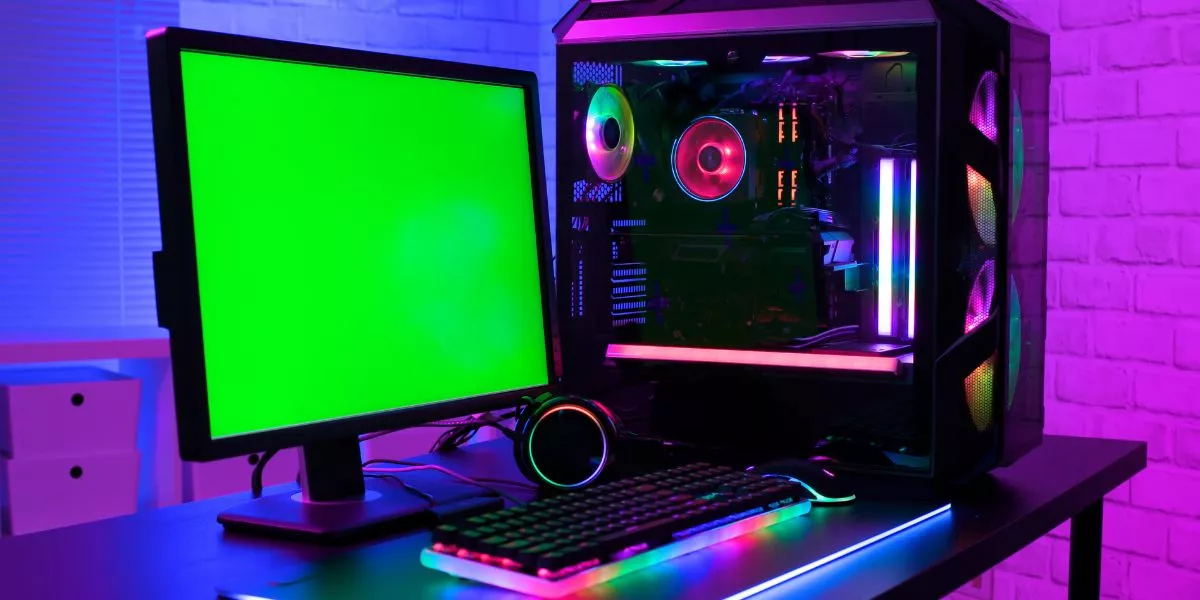
When it comes to constructing a budget-friendly gaming PC that doesn't sacrifice performance, strategic decisions can make all the difference. By focusing on key components like your CPU and GPU choices, you can strike a balance that ensures smooth gameplay without overspending. But what about other crucial elements like storage and memory? Stay tuned to discover how optimizing these aspects can further elevate your gaming experience while staying within your budget constraints.
Choosing the Right Components
When building a budget-friendly gaming PC, start by carefully selecting the components that will best suit your needs and budget. The central processing unit (CPU) is a crucial component that acts as the brain of your system. Look for a balance between performance and cost, considering options from both AMD and Intel. AMD's Ryzen series often offers great value for budget builds, while Intel's Core processors are known for their strong single-core performance.
Next, focus on the motherboard, which serves as the foundation for your PC components. Ensure compatibility with your chosen CPU and consider features like USB ports, expansion slots, and RAM capacity. When it comes to memory, prioritize speed and capacity to enhance gaming performance. Opting for dual-channel RAM kits can improve data transfer speeds.
For storage, consider a combination of a solid-state drive (SSD) for faster boot times and a traditional hard disk drive (HDD) for mass storage. Lastly, don't overlook the power supply unit (PSU) – choose a reliable unit with sufficient wattage to power your components effectively.
Budget-Friendly Graphics Card Options
Consider exploring budget-friendly graphics card options to enhance your gaming experience without overspending. When looking for a graphics card that offers a good balance between performance and cost, options like the AMD Radeon RX 560 or the NVIDIA GeForce GTX 1050 Ti are worth considering. These cards provide solid performance for 1080p gaming without breaking the bank.
Another budget-friendly option is the AMD Radeon RX 570, which offers excellent value for its performance capabilities. This card can handle modern games at decent settings and frame rates without costing you a fortune. If you're willing to invest a bit more, the NVIDIA GeForce GTX 1660 Super provides a significant performance boost while still being relatively affordable.
When choosing a budget-friendly graphics card, make sure to consider factors like VRAM capacity, core clock speeds, and cooling solutions to ensure optimal performance. By selecting a cost-effective graphics card that meets your gaming needs, you can enjoy a smooth gaming experience without putting a strain on your budget.
Optimizing Storage and Memory
To enhance your gaming PC's performance and efficiency, optimizing storage and memory is crucial. When it comes to storage, consider using a Solid State Drive (SSD) for your operating system and most-played games.
SSDs are faster than traditional Hard Disk Drives (HDDs), reducing loading times and providing a smoother gaming experience. Opt for a larger capacity SSD for your games and a smaller one for the OS to strike a balance between speed and cost.
Additionally, adding more Random Access Memory (RAM) can significantly improve your PC's multitasking abilities and overall performance. Aim for at least 16GB of RAM for a gaming setup that can handle modern titles without lag.
Opting for a higher frequency RAM, such as DDR4, can further boost your system's speed. By optimizing your storage with SSDs and increasing your RAM capacity, you'll ensure that your gaming PC runs smoothly and efficiently without breaking the bank.
Balancing Performance and Cost
Achieving the ideal balance between performance and cost is key when building a budget-friendly gaming PC. To strike this balance effectively, prioritize components that directly impact gaming performance, such as the CPU and GPU. Allocate a significant portion of your budget to these core components to ensure smooth gameplay without overspending on unnecessary features.
When selecting a CPU, consider mid-range options that offer a good mix of performance and affordability. AMD's Ryzen 5 series and Intel's Core i5 processors are popular choices for budget-conscious gamers. These CPUs provide ample power for gaming without the premium price tag associated with high-end models.
Similarly, when choosing a GPU, opt for a mid-range graphics card that can deliver solid frame rates at 1080p or 1440p resolutions. Nvidia's GTX 1660 Super or AMD's Radeon RX 5600 XT are excellent options that offer a good balance between performance and cost.




